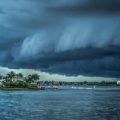The proposal by US congressmen that the US provide free internet to Cubans on the island seems to be increasingly far from reality.
The initiative to promote digital access to Cubans arose after the state-owned Telecommunications Company of Cuba SA (ETECSA) deliberately subjected Cubans to Internet cuts, censorship of social networks and decreased connection speed for more than seven days.
All this in order to contain the flow of information generated since the national uprising of July 11, reported Radiotelevisionmarti.
The communist regime has intensified the harassment against activists and detractors, and has managed to contain citizens’ claims to a large extent.
Proof of this is that last month, the call for the Civic March for Change in Cuba scheduled for November 15 was frustrated, in part, by the cuts in the Internet and data services to the main promoters and their families from the days prior to the march.
The Inter-American Commission on Human Rights (IACHR) and its Office of the Special Rapporteur for Freedom of Expression (RELE) denounced this strategy as part of the repressive and intimidating measures to prevent the civic march called by Archipelago.
The Republican representative for Florida, María Elvira Salazar, who has led a project in the House of Representatives to provide Cubans with open and free access to the network of networks from the US, said this Friday that this initiative is not progressing due to a lack of will politics.
“I have met with two independent companies that have the technology ready to make the Internet work for Cuba, but until the Biden Administration takes action there is no way forward. Until now they have refused, ”said the Cuban-American.
On Wednesday, in an appearance before the Senate Foreign Relations Committee on US policy regarding democracy in Latin America and the Caribbean, Brian A. Nichols, US Under Secretary of State for Western Hemisphere Affairs, mentioned some of the current obstacles to realizing the plan.
“The first is the amount of bandwidth entering the country, which is quite limited. If there was a greater bandwidth in general, there would be a greater capacity to access the Internet at higher speeds ”, said the official.
The regime uses a series of technologies and techniques to block internet access
He also said that the regime uses a series of technologies and techniques to block Internet access to individuals, small groups of people, to specific geographic locations and, in reality, it does not usually shut down all Internet on the island.
“Therefore, defeating those techniques and technologies is an important focus of our efforts,” he explained.
Nichols mentioned the idea of projecting a wireless signal on the island, “either from a balloon or an airplane or from a static location” when Cuban authorities are actively trying to interfere.
Congresswoman Salazar along with a dozen political colleagues presented to Congress the American Freedom and Internet Access Act, a project that implements “Operation Starfall”, a strategic plan to provide access to wireless communications abroad amid blackouts , disasters “or when dishonest regimes” like that of Cuba “close access to the Internet.”
In July, the White House published the document Fact Sheet: Measures of the Biden-Harris Administration on Cuba in which the policy of the United States government towards the island is detailed and where special attention is given to the free Internet for Cuba.
For its part, the Senate approved in August an amendment to its budget presented by Republican Senators from Florida Marco Rubio and Rick Scott, in order to facilitate Internet access in Cuba.
But this week the statements to the NBC television network made by Juan González, the main adviser to the White House for Latin America, leave little room for the possibility of the project crystallizing.
González said the administration has spent an “inordinate amount of time” analyzing the issue of Internet connectivity and reviewed what the Trump administration did with the Internet Working Group for Cuba that it created.
“There is no really technical and easy solution, nor is there the technology to have Internet connectivity, so we should focus on how to bypass censorship,” he said.
















